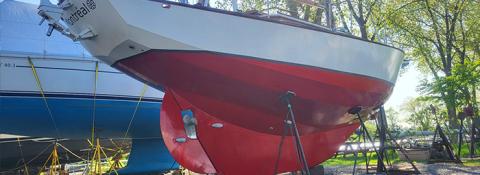Have you ever noticed how alcohol hits you faster when you’re exposed to the sun, wind, or high temperatures? This is just one factor, amongst others, that you should consider before embarking on a boat while impaired.
Navigating a boat while impaired is an offense under the criminal code of Canada
While it is not illegal to consume alcohol while on board a boat, the tolerated rate is the same as in a motor vehicle, i.e. 80 milligrams of alcohol per 100 milliliters of blood.
What are the sanctions on a boat?
Boaters who consume alcohol before navigating put themselves and their passengers at risk. Sanctions according to the criminal code of Canada are as follows:
- 1st offence: Minimum fine of $1000
- 2nd offence: Minimum of 30 days in prison
- 3rd offence: Minimum of 120 days in prison
The Effects of Alcohol
Alcohol affects the boat conductor’s motor and mental capacities: their judgement, motor skills, reaction time, reflexes, perception and concentration are all affected, amongst others. In addition, alcohol accelerates hypothermia.
Alcohol consumed on a boat hits your system faster and harder than alcohol consumed on ground. Fatigue, the sun, noises and sudden movements on the water contribute to intensifying alcohol effects. Thus, driving a boat while alcohol impaired is not only illegal but just as dangerous as driving a motor vehicle drunk – if not even more!
Practicing This Could Wreak Havoc
Think twice before driving or embarking on a boat after a few drinks; a long-term study on deaths caused by boating incidents showed that at least 39% of victims had alcohol in their systems.
More so if you have adolescent children, do not hesitate to warn them of the effects of alcohol and boating. Even at the beginning or in the middle of the day, a young person should pay as much attention to the condition of the boat driver as to that of a driver who brings him home by car after an evening out.
For more information on the consumption of alcohol and boating, visit the Sûreté du Québec and Transport Canada websites.




